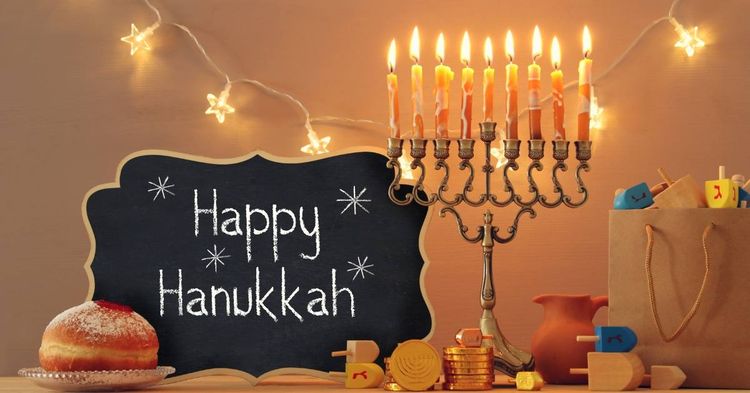Hanukkah, also known as the Festival of Lights, is a significant Jewish holiday. It commemorates the rededication of the Second Temple in Jerusalem.
The festival lasts for eight days, symbolising the miracle of the menorah. A small amount of oil, meant to last only one day, burnt for eight days in the temple. This event is central to Hanukkah's celebration.
Families light menorahs, exchange gifts, enjoy festive foods like latkes, and play dreidel games during this joyous occasion.
Check Out| Top 50 Christmas Songs You Need to Add to Your Playlist This Holiday Season
The Story of Hanukkah: Why is it Celebrated?Hanukkah, also spelt Chanukah, is a Jewish festival known as the "Festival of Lights," celebrated for eight days and nights, beginning on the 25th of Kislev in the Hebrew calendar.
The Hebrew word "Hanukkah" translates to "dedication," reflecting the holiday's central theme of rededicating the Second Temple in Jerusalem after its desecration by the Seleucid Empire in 164 B.C.
In Case You're Interested| Christmas Eve 2024: 30+ Quotes, Greetings, Wishes to Share with Friends and Family Before Christmas Day
How is Hanukkah Celebrated? Traditions and CustomsHanukkah, also known as the Festival of Lights, is celebrated with a variety of traditions and customs that reflect its historical significance and cultural heritage. Here are the key observances associated with this festive holiday:
1) Lighting the MenorahThe most important ritual of Hanukkah is the lighting of the menorah, or hanukkiah, which has nine branches: eight for each night of the festival and one for the shammash (helper candle).
Each night, one additional candle is lit, starting with one on the first night and culminating with all eight on the final night. This act symbolises the miracle of the oil that lasted eight days in the ancient Temple.
As candles are lit, blessings are recited to acknowledge the significance of the festival. Families often gather around the menorah to share in this moment, creating a warm and spiritual atmosphere.
3) Eating Traditional FoodsFood plays a central role in Hanukkah celebrations, with an emphasis on dishes fried in oil to commemorate the miracle of the oil. Popular foods include:
Latkes: Crispy potato pancakes are often served with applesauce or sour cream. Sufganiyot: Jelly-filled doughnuts dusted with powdered sugar. 4) Playing DreidelAnother beloved tradition is playing dreidel, a four-sided spinning top inscribed with Hebrew letters. The letters represent a phrase meaning "a great miracle happened there." This game has historical roots, as it allowed Jewish children to study the Torah secretly during times of oppression while pretending to play.
5) Gift-GivingWhile not originally a traditional practice, gift-giving has become common in many families, especially in North America, influenced by Christmas customs. Some families exchange gifts on each night of Hanukkah, while others may give gelt (chocolate coins) to children.
6) Public CelebrationsIn recent years, public menorah lightings have become popular, especially among Chabad Hasidic communities. These events foster community spirit and allow for broader public participation in the celebration of Hanukkah.
7) Community GatheringsFamilies often come together for festive meals and gatherings during Hanukkah. Sharing stories of resilience and courage is common, reinforcing the holiday's themes of faith and perseverance.
8) Songs and MusicSinging traditional Hanukkah songs adds to the festive atmosphere. Songs often celebrate the history and miracles associated with Hanukkah, enhancing communal joy and connection during this time.
Also Read| 50+ Funny Christmas Memes, Short Messages, and Heartwarming Greetings for 2024










































